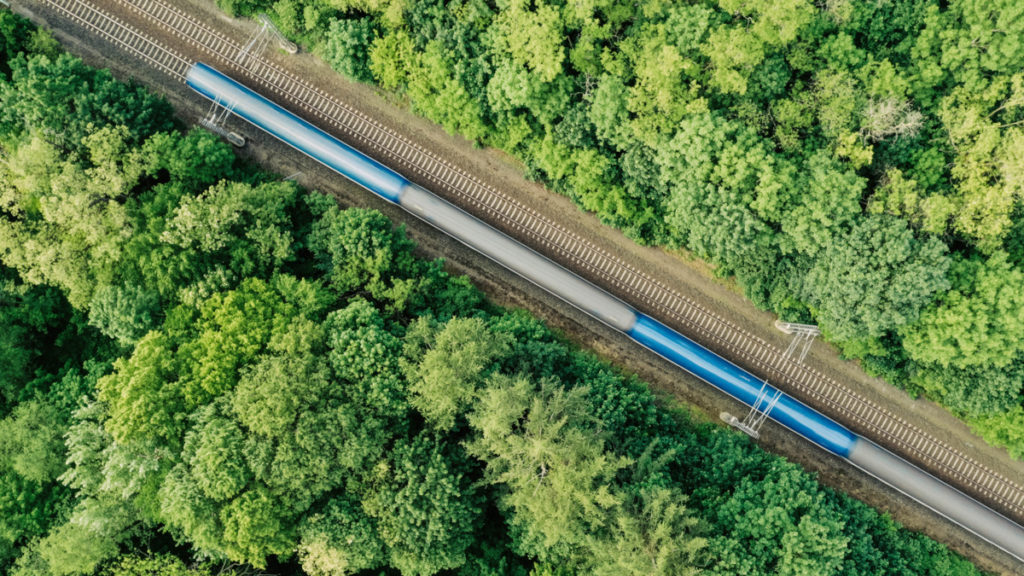A Network Rail survey has revealed that two-thirds of the British public see the railway as a green mode of transport, however 73% of those surveyed primarily use cars for their journeys.
Despite volatile fuel prices and rail’s significantly lower carbon emissions, Network Rail found that people need further convincing to travel on trains rather than cars. However, using the train for leisure travel is on the rise.
The survey was carried out as part of the industry-wide ‘We Mean Green’ campaign which aims to encourage travellers into making greener travel choices. Two thousand people across the country were surveyed ahead of the UN Climate Change Conference (COP26) in Glasgow, and were asked a wide range of questions about their travel habits.
Of the 2,000 people surveyed, 67% said they would consider using the train instead of a car for a day out with friends or family, and 55% would also consider using the train for travel to a big music or sports event. The rise in leisure travel re-affirms the major impact Covid-19 has had on shifting passenger travel patterns with many still working from home.
“Rail is the greenest form of public transport there is,” said Tim Shoveller, managing director for Network Rail’s North West & Central region. “We want to encourage as many people as possible to make the shift from car to train more regularly, particularly for long-distance travel – not just for the planet, but for reliability, comfort and safety.”

Passenger numbers have increased by 19% in the past two months, helped by incentives such as the introduction of flexible season tickets. Total passenger numbers are now at around 65% of pre-Covid-19 levels, and commuters are steadily returning.
Network Rail has committed to reduce its own operational carbon emissions by 25% by 2024 as part of its pledge to become Net Zero by 2050 in line with government policy. Another commitment is to do more to protect and conserve wildlife habitats on its land.

